- Home
- James Swain
Funny Money Page 10
Funny Money Read online
Page 10
He heard a cat scream, followed by Sparky letting out a scream of his own. Then a loud crash. Reaching the stairwell, he flipped on the basement light.
Sparky lay on his back, his neck twisted at an unnatural angle. His wheelchair lay beside him, both wheels spinning. Clinging to his bathrobe was a terrified black cat.
Valentine ran down the stairs. The cat cowered in a corner, hissing.
“Sparky? You okay?”
He put his ear next to Sparky's mouth. The paralyzed cop's breathing was shallow. “I . . .”
“What?”
“I'm . . . sorry.”
“About what?”
“You know . . .”
“Tell me.”
“Doyle . . .”
Sparky's breathing grew faint and his eyes closed, and then he wasn't breathing at all.
“Oh, Jesus,” Valentine whispered.
Valentine tried to think.
The smart move was to run. That was what crooks did in tight situations. Run. That was his best option. Only he'd left his fingerprints all over the house.
Going back upstairs, he laid his overcoat and scarf on the kitchen table, got a dishrag from the sink, and went around the house rubbing down anything he might have touched. Then he did the same in the basement. Climbing up the ramp, he turned out the light and left the door ajar.
Finding the cat's bowl, he filled it with dry cat food, then filled another bowl with water and put it on the floor. Tomorrow, he would make an anonymous phone call to the police and ask them to let the cat out.
He started to open the front door as mail came through the slot. He went to the living room window and saw the mailman walk down the path. A woman in curlers was standing on the sidewalk. They started to chat. He took a seat by the door.
Then he played back what had happened.
And got nowhere.
It didn't make sense. He'd known Sparky a long time. All he'd wanted was a straight answer.
He kicked Sparky's mail with his foot. It scattered across the floor. Bills, flyers, and something from the IRS. He picked up the IRS letter by its corners and peered through the plastic window. The words Final Notice popped out.
The letter struck him as odd. Sparky was broke. So why was the IRS breathing down his neck?
He boiled water on the kitchen stove and steamed the envelope open, then used a fork to remove the letter. His eyes ran down the page. Sparky had made two ten-thousand-dollar deposits into his account, which his bank had reported to the IRS, as it was required by law to do. The IRS was now holding the money, and demanding an explanation of its origin.
Valentine put the letter down. Where the hell had Sparky gotten twenty grand?
He found a pair of rubber gloves beneath the sink, put them on, and searched the house. Sparky's bedroom was behind the kitchen, and he checked all the places the paralyzed cop could reach. On the bottom of the dirty clothes hamper he hit pay dirt and removed a shoe box wrapped in rubber bands.
The box was heavy. Opening the lid, he stared at the stacks of brand new hundred-dollar bills. He dumped them onto the bed. He used to be good at counting money at a glance and guessed the box contained thirty grand. He counted it just to be sure.
Thirty grand on the nose.
He sat down on the bed, his head spinning. Had Sparky made the money selling hot guns? It was the only logical answer he could think of. The phone on the night table rang and he nearly jumped out of his skin. On the fourth ring the answering machine picked up.
“I'm not here,” Sparky's recorded voice said gruffly. “Friends can leave a message. Everyone else, go to hell.”
“Sarge,” a woman's voice rang out. “You there? Pick up. I need to talk to you.”
The woman hung up. Valentine stared at the phone. Who the hell was Sarge?
He searched the other drawers in Sparky's dresser, and in the bottom one found a framed photograph taken during Desert Storm. Sparky stood in the back row with his regiment, looking sharp in his army uniform. Valentine stared at the other faces; half were men, the others women. There was too much sunlight to make anyone out. He took the photograph out of its frame and stared at the back, hoping to find the regiment's name or call numbers. It was blank.
He went to the front of the house and looked out the living room window. The mailman and next door neighbor were gone.
He got out of the house as fast as he could.
18
Honey
Sitting behind the wheel of the Mercedes, he peeled off the rubber gloves. Then he backed out of the alley next to Sparky's house. There were times when being in a flashy car wasn't good, and this was certainly one of them.
He drove for several miles, then parked next to a Wendy's and sat in the parking lot for several minutes, trying to gather his thoughts. Sparky's dying words were already starting to haunt him. You know . . . Doyle . . .
He stuck his hand in his pocket and took out Sparky's trusted .38. He'd told Sparky he needed another gun, and now he had one.
He stuck the gun back in his pocket. Then he tried to make sense of what had happened. Fifty grand was a lot of dough. Selling hot guns couldn't be that lucrative. Even if it was, it didn't explain why Sparky had thrown the bottle at him. Nor the fear in Sparky's eyes. That was bothering him the most.
Going inside the restaurant, he bought coffee, then sat in his car and drank it. Soon his head was buzzing like a cheap TV. During his last checkup, his doctor had ordered him to cut out caffeine after 4 P.M. He'd said sure and gone right on drinking coffee and diet Cokes, caffeine the one addiction he planned to take with him to his grave.
Doyle had been a caffeine junkie as well. And an ex-smoker. They'd been alike in a lot of ways. So much so that Valentine had known his partner inside out. And if Doyle had one flaw, it was his inability to keep a secret. If Sparky was talking to Doyle, and had told Doyle anything worth repeating, Doyle would have told someone. It was simply his nature.
He fished Doyle's cell phone out of his pocket. Powering it up, he retrieved Honey's number. He needed to talk to this woman, just to see what she knew.
He hit the Send button. On the third ring, a woman's sleepy voice answered.
“Is this Honey?”
The woman let out a gasp.
“Look, you don't know me, but my name is Tony Valentine, and I—”
“Tony?” the woman said.
“Yes?”
“Oh my God, is that you?”
Liddy Flanagan met him at the front door of her house. She'd been lying in bed when he'd called—“No reason to get up,” she'd explained—and had thrown on jeans and a threadbare sweater and brushed out her hair. She looked like a ghost, her skin creamy white and translucent, showing every hidden vein. They went into the kitchen and she poured herself a cup of that morning's coffee and stuck it in the microwave.
“Honey was Doyle's nickname for me,” she said, sitting in the nook. “It came from his favorite song, Van Morrison's ‘Tupelo Honey.' When you called the other day and used that name, I cried for hours.”
“I'm sorry.”
“It's not your fault.”
He watched her drink the steaming brew. Even the smell of coffee put his brain in high gear, and he reached across the nook and touched her arm. “Liddy, why did you lie to me the other day?”
The question jolted her out of her lethargy.
“I didn't lie to you.”
He lowered his voice to a conspiratorial whisper. “Yes, you did. You said you found Doyle's notebook hidden under the bed. That wasn't true, was it?”
Liddy did not reply.
“You found it in the safe,” he went on, “where Doyle kept all his important documents, like his life insurance and his savings bonds.”
“Who told you about the safe?”
“I helped him install it, for Christ's sake.”
“Oh, God, how stupid of me.” Liddy ran her hands through her hair. A number of expressions battled for a place on her face. A smile won out.
“I never should have thought I could pull a fast one on you.”
They shared a long silence. Then he said, “You gave me that notebook hoping I'd unravel this thing. Well, every time I turn a rock over, I discover another snake. Doyle must have told you something.”
“I'll tell you what Doyle told me,” she said, lowering her voice. “But please keep me and the boys out of it.”
He promised her he would.
“While Doyle was doing his investigation, he heard a story about another scam, one that involved a gang of employees. At first, he didn't believe it. Doyle had so many friends at The Bombay. But then he got a call from a phone operator who worked there. He told Doyle the scam was real.”
“Do you remember this phone operator's name?”
“Sparky Rhodes. He's in a wheelchair. He'd been in Desert Storm with several Bombay employees. He told Doyle the Desert Storm gang had decided to rip Archie Tanner off.”
“Why did Sparky call Doyle?”
“He told Doyle he was afraid they'd be caught, and he'd end up in prison. He said gimps don't last long behind bars.”
“What happened then?”
“Doyle went to Sparky's house. Sparky had secretly taped a meeting the employees had, and he played it for Doyle. The employees were angry because Archie Tanner had spent their pension money buying hotels in Florida. They talked about ripping off The Bombay.”
“How?”
“Slots.”
“And that's where the quotes in Doyle's notebook came from.”
“Yes.”
“What did Doyle do with the information?”
“He called the Division of Gaming Enforcement and the Casino Control Commission and spoke to the auditors. They checked into it and told Doyle The Bombay's slot take was normal. Doyle asked them to check the take again, and got the same answer. Then he contacted Detective Davis.”
“Why Davis?”
“Davis was handling the Funny Money investigation. You know, all the fake coins showing up around town.”
“So Doyle thought the cases were connected.”
“I guess.”
“What happened then?”
Liddy stared into the depths of her coffee cup. “Doyle was supposed to meet with Davis the night he got killed.”
“Did Doyle tell you anything else?”
“He said he wished he'd never taken the job.”
She went to the sink to wash her hands. She was moving in slow motion, the permanence of Doyle's death finally catching up with her. Valentine came up from behind, and put his hand gently on her shoulder.
“One more question.”
“What's that . . .”
“Was Frank Porter involved?”
He saw the corners of her mouth turn down. Then remembered that Frank was Sean's godfather.
“I don't know,” she said.
“Please don't lie to me, Liddy.”
Her shoulders tensed. “How do you know I'm lying?”
For as long as he could remember, Valentine had known when people were lying to him. It was a gift, yet also a curse.
“I just do.”
A tear did a slow crawl down her face. “Yes. Frank knew.”
He handed her a paper napkin from a basket on the counter and watched Liddy dab at her eyes. He struggled for something insightful to say to lessen her pain.
Nothing good came to mind.
19
Money Plays
Going back to his motel, Valentine flopped down on the bed with his clothes on and pulled out his cell phone. From memory he punched in Joe Cortez's number at the Immigration and Naturalization Service.
There were days that would always stay in his memory. His first great Christmas. Kissing Lois for the first time. Seeing Gerry take his first real step. Special days that would remain fresh, no matter when he thought of them.
For Valentine, one of those special days had occurred because of Joe.
It had happened like this. In 1982 he'd been assigned to work the high rollers room at the old Resorts International casino. A Japanese billionaire named Toki Mizo had been playing blackjack, and asked the house to raise the stakes to a half-million dollars a hand. The dealer, an imported French guy in a pointy-collar tux, had objected.
“But, sir, it is unheard of,” the dealer said.
Mizo slapped the table angrily. He was down four million bucks and hadn't broken a sweat. A handful of casino employees hovered around him, tending to his every whim. Mizo glanced across the room at Valentine, who was leaning against the wall. Mizo knew he was a cop—high rollers always drew heat—and motioned him over to the table.
“Hey, Mr. Policeman, what do you think?”
Valentine shrugged his shoulders. “None of my business.”
“Come on,” he said. “You been around.”
That Valentine had. And seen a lot of blackjack played. Playing one-on-one against the dealer like Mizo was doing was a dangerous proposition. A player could go broke in the time it took to smoke a cigarette.
“Well,” Valentine said, “you know what they say.”
“What's that?”
“Money plays.”
Mizo had to think about it. Then he smiled. “And that's what makes the world go round, my money.”
“It sure as hell isn't my money making the world go round,” Valentine said.
Mizo burst out laughing. So did everyone else in the room. Even the dealer let out a snort. The casino's general manager slipped under the red rope that separated the Worthy Few from the Unwashed Mob, and whispered in the dealer's ear.
“A half-million dollars it is,” the dealer announced.
Valentine went back to leaning against the wall. A cocktail waitress appeared, testing her strength with a tray of drinks. She'd served him a Coke.
Valentine sipped the drink. By the time the glass was empty, Mizo was down twenty-six million dollars.
It would go down as the single biggest loss in casino history. Out in Las Vegas, where Mizo had been lured from, it had pissed off everybody. And, it had made Valentine's reputation, the expression money plays becoming a slogan in one of the city's advertising campaigns.
“I remember that little bastard,” Special Agent Joe Cortez of the INS said. “That was a fine piece of police work you did tracking him down.”
“Couldn't have done it without you,” Valentine said.
“No,” Cortez said, “you couldn't have.”
Where the story had gotten interesting was when Mizo had tried to blow town and not pay off his marker. On a hunch, Valentine had called Joe and found out which airports had direct flights to Japan. The earliest was out of Philadelphia on JAL, and he'd driven there and convinced the local cops to let him board. He'd found Mizo hiding in a john.
“I need your help,” Valentine said now.
Cortez worked in Newark on the third floor of a brick building with old-fashioned fire escapes and an American flag hanging out front. He said, “For you, anything.”
“I'm trying to track down a gang of European blackjack cheats. My guess is, they're here on some type of special visas. I was hoping you could help me finger them.”
“Tony, two hundred thousand foreigners visit New Jersey each year,” Cortez said. “That's a tall order.”
Valentine told Joe what he knew: three guys, one woman, well educated, late thirties. He'd thought a lot about their accents and said, “My guess is they're from Yugoslavia, that part of the world.”
“I don't think Yugoslavia is a country anymore.”
“Shows you where I've been.”
“Well, that winnows it down. You said they were blackjack cheats?”
“That's right.”
“Well educated?”
“Very. One of them listens to Vivaldi.”
“Anything else I should know?”
“The woman is beautiful. Like a young Audrey Hepburn.”
“How are they cheating?”
“I honestly don't know. They've got a sys
tem, and I'm beginning to think it's mathematical.”
“They must be good if they've got you stumped. Think they might be here on teaching visas?”
“There's a thought.”
He listened to Cortez's stubby fingers pry information from the INS's super-computer located in the basement of his office. Joe cleared his throat and Valentine sensed he'd found something.
“I looked through all the foreigners in New York and New Jersey staying here on teaching visas,” he said. “There's 647 names. I looked to see if any were in groups, and narrowed the list down to 360. Now I need to sort through them.”
“How much time do you think it will take?”
“That's hard to say. I may have to work on it at home tonight.”
“I really appreciate this, Joe.”
“What are pals for,” Joe said.
Valentine's eyes snapped open to the sound of the telephone ringing.
He'd fallen asleep fully dressed. It had grown dark outside his motel room. He heard his stomach growl. Had he eaten today? He honestly didn't remember. He looked at his watch. Three hours had passed since he'd spoken to Joe. He picked up the phone.
“There you are,” Mabel said by way of greeting. “You must start leaving your cell phone on.”
“Why should I do that?”
“Because people are looking for you.”
“That's no reason to leave it on.”
“Stop being obtuse,” his neighbor said.
He sat up too quickly and the room started to spin. He touched the bump on the back of his head and saw stars.
“Who's looking for me?”
“Your son. He called this morning. He said the Mollo brothers are chasing him all over New York. He begged me to ask you to reconsider lending him fifty grand.”
Valentine laughed into the phone. He was feeling better already. “So how's your day going?”
“The afternoon was quiet. I started reading one of the books on cheating I found in your library. I have a question.”
“Shoot.”
“What's a monkey's paw?”
“It's the furry thing at the end of a monkey's leg. They use it to peel bananas.”

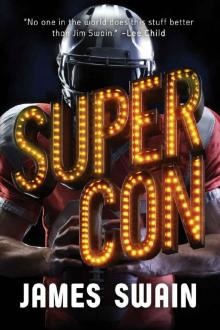 Super Con
Super Con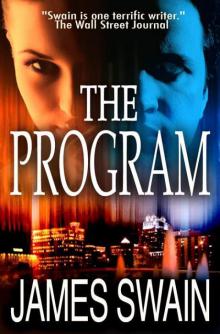 The Program
The Program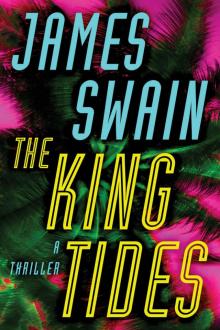 The King Tides (Lancaster & Daniels Book 1)
The King Tides (Lancaster & Daniels Book 1)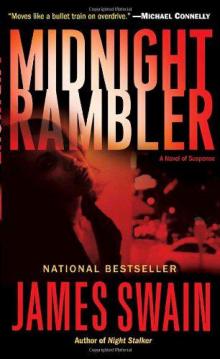 Midnight Rambler
Midnight Rambler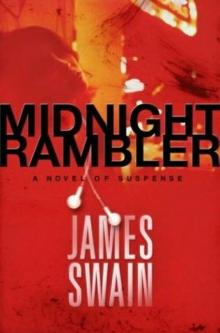 Midnight Rambler jc-1
Midnight Rambler jc-1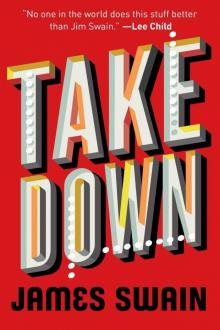 Take Down
Take Down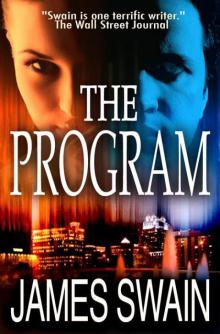 The Program (Jack Carpenter series)
The Program (Jack Carpenter series)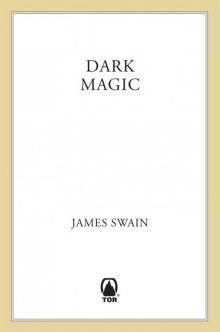 Dark Magic
Dark Magic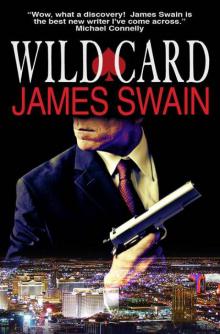 Wild Card (Tony Valentine Series)
Wild Card (Tony Valentine Series)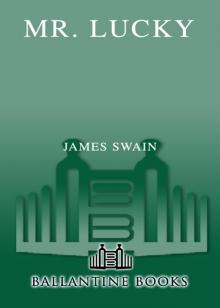 Mr. Lucky
Mr. Lucky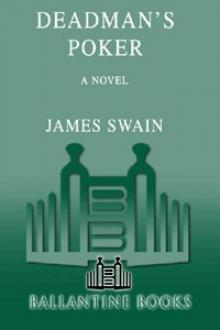 Deadman's Poker: A Novel (Tony Valentine)
Deadman's Poker: A Novel (Tony Valentine)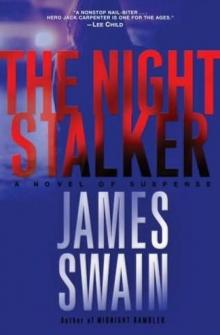 The Night Stalker jc-2
The Night Stalker jc-2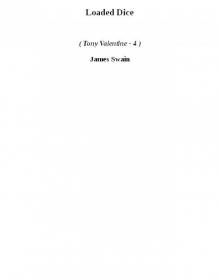 Loaded Dice tv-4
Loaded Dice tv-4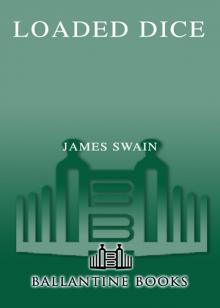 Loaded Dice
Loaded Dice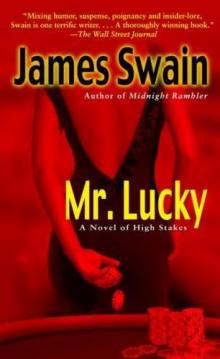 Mr. Lucky tv-5
Mr. Lucky tv-5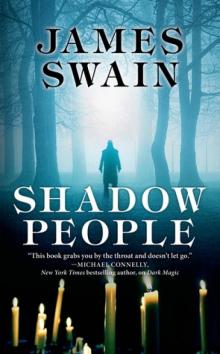 Shadow People
Shadow People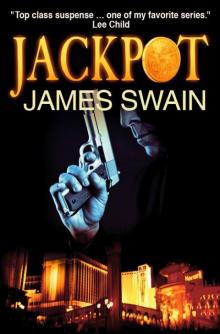 Jackpot tv-8
Jackpot tv-8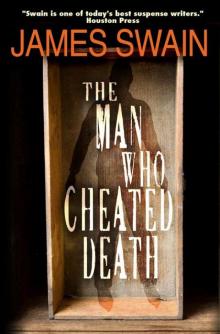 The Man Who Cheated Death (Vincent Hardare)
The Man Who Cheated Death (Vincent Hardare)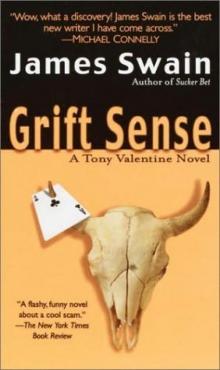 Gift sense tv-1
Gift sense tv-1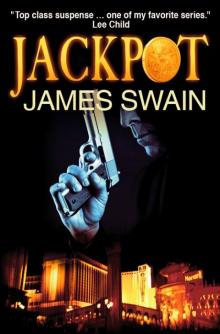 Jackpot (Tony Valentine series)
Jackpot (Tony Valentine series)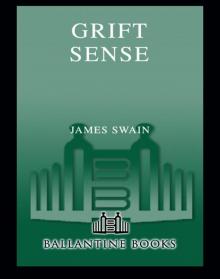 Grift Sense
Grift Sense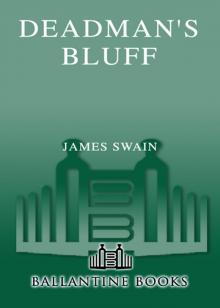 Deadman's Bluff
Deadman's Bluff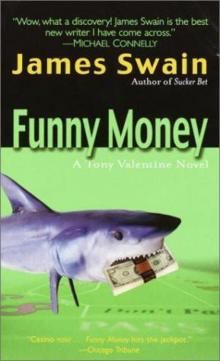 Funny Money tv-2
Funny Money tv-2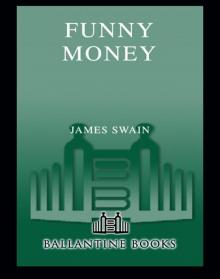 Funny Money
Funny Money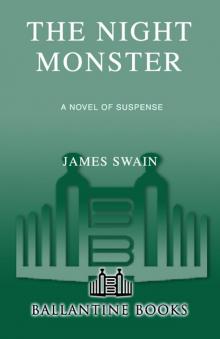 The Night Monster
The Night Monster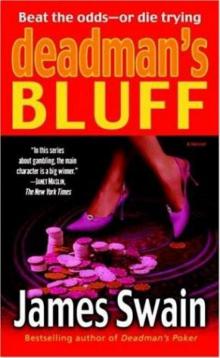 Deadman's Bluff tv-7
Deadman's Bluff tv-7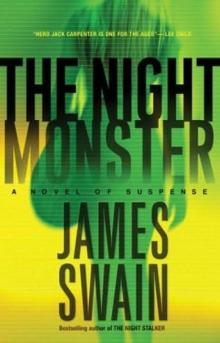 The Night Monster jc-3
The Night Monster jc-3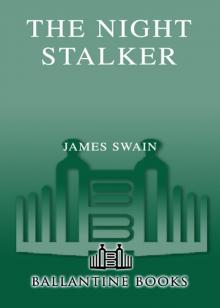 The Night Stalker
The Night Stalker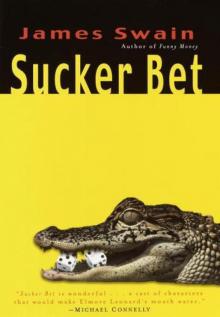 Sucker Bet tv-3
Sucker Bet tv-3